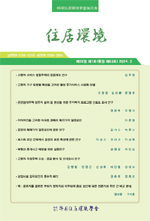감성분석을 이용한 문화도시 프로젝트의 공간 인식 변화 - 춘천시 ‘도시가 살롱’ 사업 대상지의 장소성 변화를 중심으로
A Study on Spatial Perception Change in Cultural City Project using Sentiment Analysis : Focusing on the changing sense of place of Chuncheon 'Dosiga Salon'
- 한국주거환경학회
- 주거환경(한국주거환경학회논문집)
- 제23권 제1호 (통권 제67호)
-
2025.03135 - 152 (18 pages)
-
DOI : 10.22313/reik.2025.23.1.135
- 40

With the enactment of the “Regional Culture Promotion Act” in 2014, the Ministry of Culture, Sports, and Tourism has been designating cultural cities as a sustainable regional development strategy since 2018. In line with this policy, numerous urban regeneration and cultural city projects have been actively implemented to revitalize cultural spaces and enhance the sense of place within cities. Among them, Chuncheon's ‘Dosiga Salon’ project stands as a representative case of a public cultural initiative fostering community engagement and cultural exchange by providing residents with spaces to gather and share cultural experiences. This study investigates the changes in spatial perception resulting from the ‘Dosiga Salon’ project using sentiment analysis and topic modeling. By analyzing user-generated reviews of the designated project sites before and after implementation, the study aims to identify changes in key keywords and emotional responses associated with these spaces. To achieve this, Naver Map review data was collected through web scraping, followed by the application of Latent Dirichlet Allocation (LDA) topic modeling and sentiment analysis techniques. The results indicate that, after the implementation of the ‘Dosiga Salon’ project, user reviews demonstrated a stronger emphasis on emotional and communal experiences rather than mere physical attributes. The sentiment analysis revealed an increase in positive sentiments (from 33.7% to 45.1%), suggesting an improved perception of these spaces. Moreover, keywords related to community engagement, family-friendly environments, and atmosphere became more prominent post-project. This study contributes to understanding how public cultural projects influence urban spatial perception and provides policy insights to enhance the effectiveness of future initiatives.
Ⅰ. 서 론
Ⅱ. 이론적 배경
Ⅲ. 연구 방법
Ⅳ. 분석 결과
Ⅴ. 결론 및 시사점
참고문헌
(0)
(0)